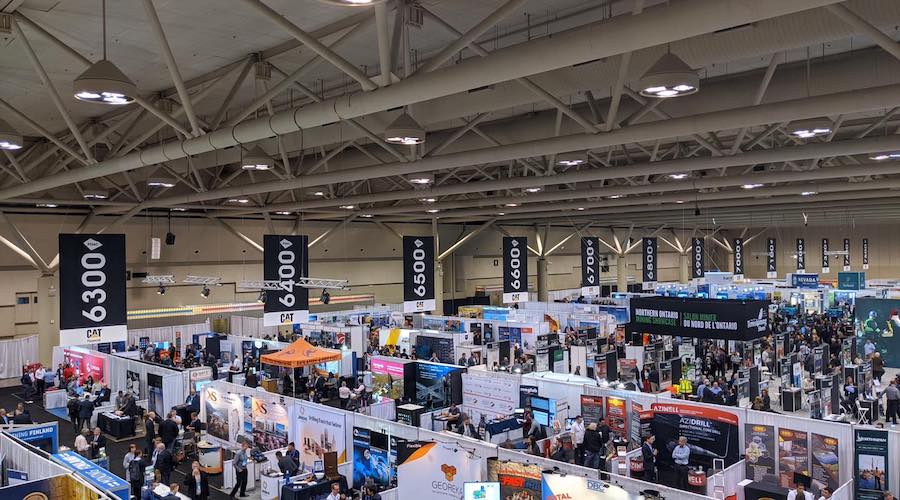Battery metal buzz counters financial market angst at mining’s big show

The turmoil that rocked financial markets this week has done little to shake the optimism around global mining, if the signs of exuberance on display at one of the industry’s biggest gatherings in years are to be believed.
Thousands of people from all areas of the industry converged at the Prospectors & Developers Association of Canada gathering this week in Toronto, a global hub for mining capitalism, to strike deals, generate buzz and network after more than two years of pandemic restrictions put an end to most big industry gatherings.
“There was massive pent-up appetite for getting out in person and seeing people” and “phenomenal dialogue between various groups,” PDAC President Alex Christopher said in an interview during the last in-person day of the gathering. “I’m sure there is a lot of business going on right now.”
Even a stocks selloff that pushed US equity markets into bear territory and warnings of recession by market pundits did little to dampen the enthusiasm of those who make a living finding and extracting minerals from the ground.
“The vibe is exciting, especially in the battery metal space,” said Chris Gale, executive director of Perth, Australia-based Latin Resources Ltd., as he navigated through the crowds in downtown Toronto’s cavernous convention center, exchanging pleasantries with familiar faces along the way. “It’s great to have everyone in the same room and the same time.”
Gale said his team had 12 meetings in three days to get the work done surrounding the development of a lithium project in Brazil. The conference helped reaffirm the excitement around battery metals, he said, even after a market rout that has seen his company’s stock slump about 70% from an April peak.
Attendants of the annual PDAC event shared the collective realization that the world desperately needs more supplies of raw materials including those critical metals—lithium, nickel, cobalt and copper—needed for batteries, electric vehicles and cleaner technologies that are considered key in a global push to shift away from fossil fuel.
Miners, battery manufacturers and automakers are racing to control more supplies of such metals amid looming shortages and skyrocketing demand from EVs. BloombergNEF expects that all known global reserves of lithium, cobalt and nickel—along with a huge contribution from metals recycling—could be exhausted if the world wants to zero-out road transportation emissions by 2050.
“That’s the excitement at PDAC—the beginning of a massive bull run for metals and mining,” said Trevor Walker, chief executive officer of Fronter Lithium Inc., which has a project in northern Ontario.
Battery metals were one of the themes at the conference. In an impromptu poll among Canada’s top mining bankers during a panel discussion at one packed session, two said they expected lithium prices to outperform other commodities in the next year on the back of rising consumption and supply shortages. The bankers expected big money to come to the battery-metals sector as generalist investors, who have largely stayed on the sidelines, gain awareness of the supply constraints for the minerals needed for the energy transition.
The focus on such industrial metals took some of the shine off precious metals in a conference that tends to draw its fair share of gold bugs and bullion producers from around the world.
“There’s a little more enthusiasm around battery metals,” Alamos Gold Inc. CEO John A. McCluskey said in an interview from his company’s booth in the sprawling trade floor, which drew 864 exhibitors—a sellout—ranging from minerals explorers, service firms and consultants to countries and mining technology firms. “I don’t see the same amount of enthusiasm in gold and silver” due mainly to macro issues such as the strength of the dollar.
Still, the conference did draw the top executive of the world’s largest gold company, with Newmont Corp.’s CEO Tom Palmer doing a keynote speech to a crowded room on Tuesday. PDAC marked his third face-to-face industry conference this year.
“You can do so much on a video conference,” Palmer said in a Wednesday interview. “But the people-to-people interaction is still a very important part of influencing the culture and managing our business.”
(By Yvonne Yue Li and James Attwood)
{{ commodity.name }}
{{ post.title }}
{{ post.date }}




Comments